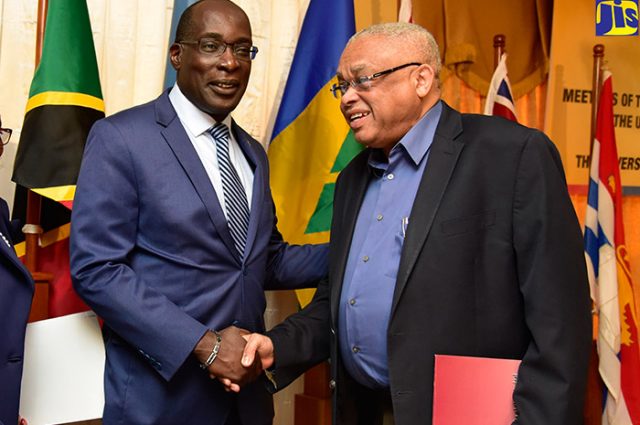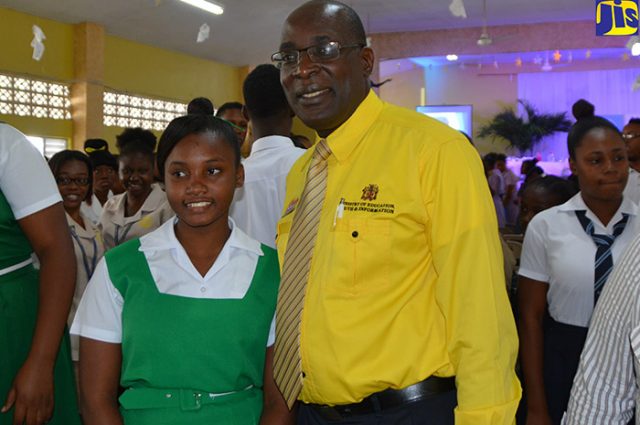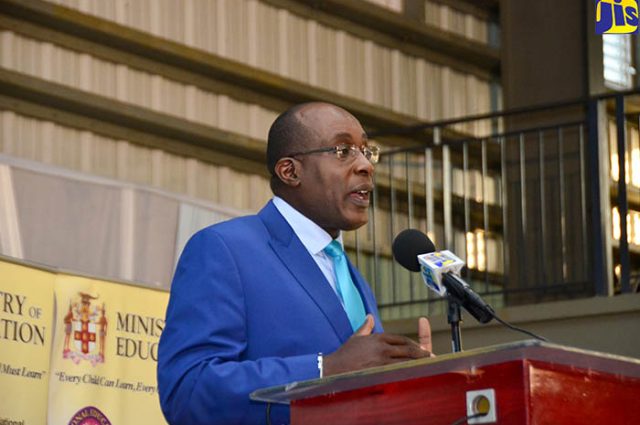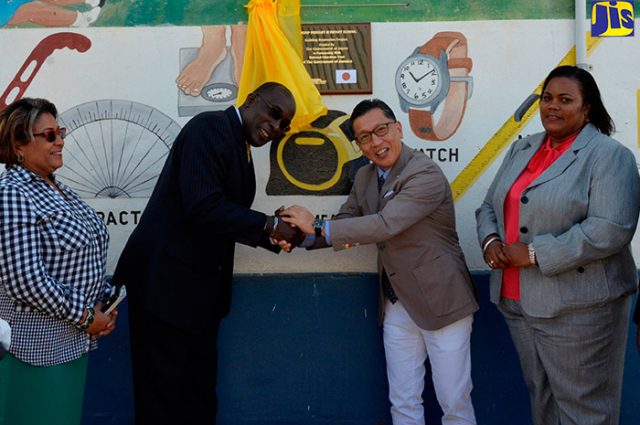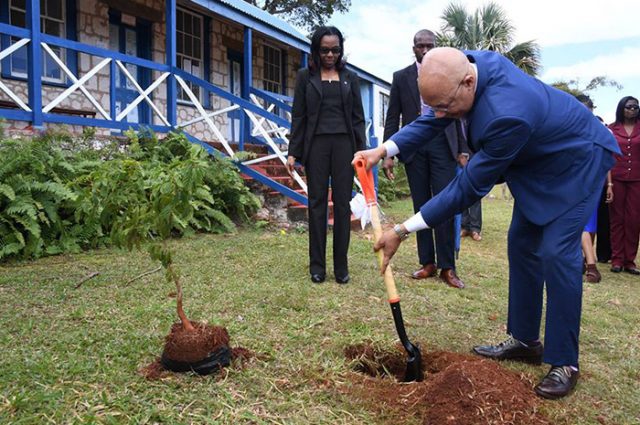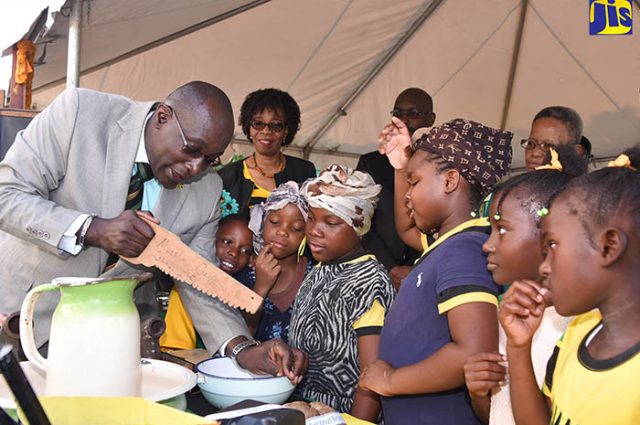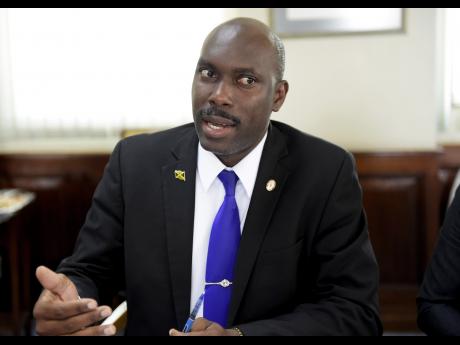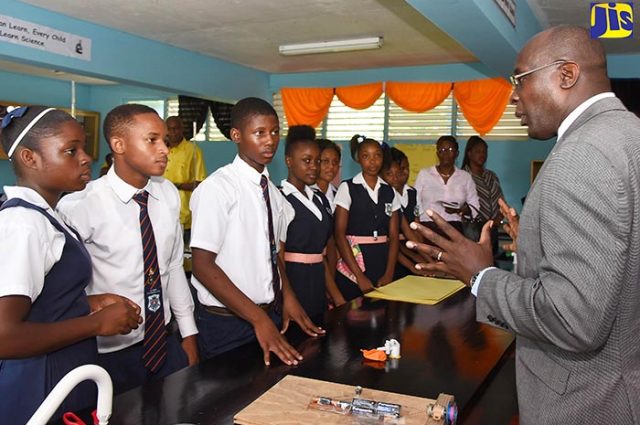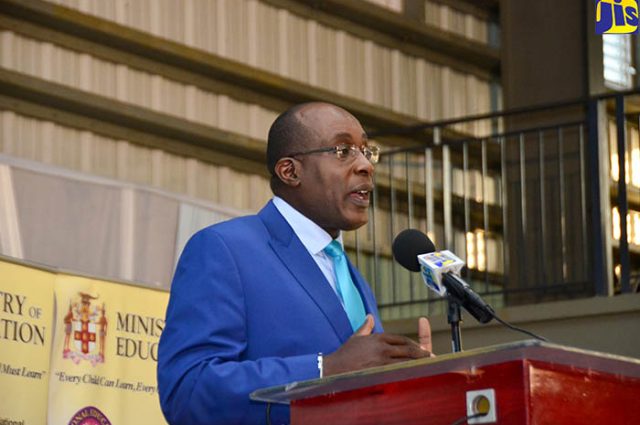JIS: Minister of Education, Youth and Information, Senator the Hon. Ruel Reid, says that higher education in Jamaica is evolving, with more institutions being established and offering new and in-demand courses.
“In addition, some of our local institutions have been improving their quality and are seeking to upgrade their status to degree-granting entities through the attainment of chartered status,” he said.
A charter institution is an independently run public school granted greater flexibility in its operations, in return for greater accountability for performance.
He noted that in recent times the Caribbean Maritime University (CMU) and the Caribbean School of Medical Sciences of Jamaica have emerged as chartered, higher educational institutions, while The Mico University College is on the way to achieving charter status.
Senator Reid was speaking at the opening ceremony for the meetings of the University of the West Indies (UWI) Technical Advisory Committees (TAC) at the Mona Visitors’ Lodge on March 6.
The Education Minister said the Government is pleased about its policy position in the establishment of the Jamaica Tertiary Education Commission (J-TEC), as the regulatory body for the tertiary sector, thereby adding impetus to the business of higher education in the region.
He also lauded the University Council of Jamaica (UCJ) for maintaining quality assurance in higher education in Jamaica through accreditation of institutions and programmes.
“Our Government’s support for these two agencies resides in recognition that greater access for more students is a desirable goal, but should not be encouraged at the expense of maintaining quality standards,” Senator Reid said.
The Education Minister noted that this week’s meeting of the UWI TACs take on added importance as “we seek to find consensus on new paradigms for funding and action”.
During the two-day meetings, the budgets for the biennium 2018-2020 for the university’s four campuses, its Vice Chancellery and the University Hospital of the West Indies (UHWI) will be reviewed and recommendations made to the grants committees.
“The challenge will be to plan wisely and to direct the resources to the areas yielding the highest returns, whilst identifying, redirecting or eliminating cost centres that are not yielding the expected returns,” Senator Reid said.
He noted that the UWI’s ‘Triple A Strategy’ for the 2017-2022 period, which is built on the pillars of Access, Alignment and Agility, speaks to wealth creation and reduction of social inequality through greater and more affordable access.
“This plan… speaks to efficient and effective alignment with society, industry and economy, and enhanced agility in pursuit of opportunities for increased demands for UWI’s programme offerings,” he added.
Since its inception in 1948, the UWI has evolved from a fledgling college in Jamaica with 33 students to a full-fledged, regional university with well over 40,000 students.
Today, The UWI is the largest, most long-standing higher-education provider in the Commonwealth Caribbean, with four campuses in Barbados, Jamaica, Trinidad and Tobago, and the Open Campus.
CAPTION: Minister of Education, Youth and Information, Senator the Hon. Ruel Reid (left), exchanges pleasantries with Pro-Vice Chancellor and Principal, University of the West Indies (UWI) Mona Campus, Professor Archibald McDonald, at the opening ceremony of the meetings of the UWI Technical Advisory Committees (TAC) at the Mona Visitors’ Lodge on March 6.


